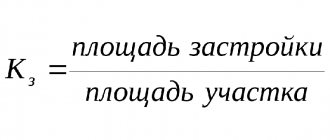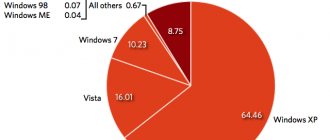Homeowners' associations and housing cooperatives have differences that can determine the choice subsequently for owners of apartments in houses.
Whether it would be better to choose a homeowners' association (HOA) as a form of management of an apartment building (MKD), or to prefer a housing construction cooperative (HBC), depends primarily on whether it is planned to first build a house together, or whether we are talking about already ready. For the first case, a cooperative was invented, and for the second, a partnership is suitable. And both options are useful if the owners plan to manage the house themselves, otherwise it is better for them to turn to the services of a management company.
Basic Concepts
In addition to the management of apartment buildings by professionals from management companies specifically designed to deal with this, residents themselves can take it into their own hands by forming their own organization. Most often this is an HOA, but there is another option - a housing cooperative. Of course, there are differences between them that make one organizational form preferable and some another.
HOA
It is a non-profit association, functioning as a legal entity, having a clearly structured internal structure and governing bodies: a general meeting in charge of the most important issues, and for current affairs, electing a board and chairman from among the members of the partnership, and an audit commission to check their work.
An HOA is formed by the decision of the owners if they want to manage the joint property themselves, without relying on the management company. It is created at a general meeting of owners if the majority of the total composition votes for it - which means that not all homeowners in the house may be in the partnership, but the majority of them must be in it, otherwise the HOA will not have the rights to manage it.
After the creation of the HOA, it will deal with the economic issues of the apartment building and the management of common property. And unlike the housing cooperative, the HOA is created after the ownership of the house has been formalized.
Housing cooperative
Organized for the purpose of building housing and then operating it. There have been many scandals with housing cooperatives related to their bankruptcy, as a result of which buildings simply remained unfinished, and members of cooperatives lost money. This happened due to the imperfection of legislation in this area, which is why in recent years it has been refined in the direction of tightening so that there are no loopholes for the so-called construction pyramids and other ways of deceiving citizens.
But this tightening, in addition to the positive effect, has also led to the fact that housing cooperatives have become more difficult to organize, and now this form can in many ways be considered outdated. So, if in the early 2000s the share of houses built with the help of housing cooperatives was about 5%, now, according to various sources, it ranges from 0.5 to 1%.
New housing cooperatives have practically ceased to form, but many of those that formed earlier and successfully completed the main task - building a house, continue to function, managing it.
Legal aspect
Both HOAs and housing cooperatives must work in accordance with the legislation of the Russian Federation, and the main document regulating their activities is the Housing Code. It discusses in detail how these organizations should be created, function, and be controlled by residents.
Section 6 of the code is devoted to the HOA, which includes 18 articles, which discuss all the main nuances of the functioning of this form of management of apartment buildings, from preparation for its creation, to checking the work of the board by the audit commission, replacing the board with residents, reorganization and dissolution of the HOA.
Housing cooperatives are fully devoted to Section 5 of the Housing Code, which includes Articles 110-134, which also discusses almost all the important details related to this form of management and the legal status of members of cooperatives. Such an abundance of articles allows us to say that in ordinary cases it is enough to focus specifically on the housing complex, which comprehensively describes all the main situations associated with both HOAs and housing cooperatives.
But their activities are also regulated by the Civil Code and a number of other legislative acts, which usually do not need to be specifically addressed. In addition to external regulation, both the partnership and the cooperative must have their own charters, containing additional important provisions relating to them - the charters are written and adopted by the members of these organizations themselves, so this can be called self-regulation. The charters should not contradict the law, but otherwise they may contain a variety of instructions beyond those given in the Housing Code.
What it is
Before we talk about the fundamental difference between one abbreviation and another, it is necessary to understand what they mean. An HOA (homeowners' association) is an organization, namely an example of partnerships, that is created directly by the homeowner. They are necessary in order to organize the management of property belonging to the so-called housing stock of multi-apartment buildings and private sectors. At the expense of such a partnership, the organization of services necessary for the maintenance of housing and the disposal of the property that is in shared ownership also takes place.
Housing cooperatives also represent certain organizations, namely cooperatives, which deal with both housing and construction issues. Accordingly, the abbreviation stands for housing construction cooperative. This form is created for the construction and further use of any real estate. However, it is considered outdated, since most of these organizations were created even before the latest edition of the Housing Code of the Russian Federation was adopted.
The forms under consideration can only be created as a non-profit organization, since they do not imply the main goal of making a profit.
Speaking about the relationship between partnership and cooperative, it is necessary to define several criteria that would reflect their essence and significance:
We recommend that you read:
What is the difference between an agreement for shared participation in construction and a housing cooperative and which is better?
- organizational and legal form;
- constituent papers;
- the purpose of forming the organization;
- formation methods;
- deadlines;
- members of organizations;
- features of carrying out economic activities.
These characteristics will determine the similarities and differences between HOAs and housing cooperatives, and also reflect the essence of the activities they carry out.
In any form that would be used to create this kind of organization, the main direction of activity is focused on ensuring the rights that each of the residents of the house has, be it multi-storey buildings or private sectors. However, it is necessary to understand that the first option, namely the HOA, is more productive and covers a wide range of possibilities, while the housing cooperative is completely outdated and in some situations is not even used.
MKD management forms
Homeowners in apartment buildings can choose their preferred form of management. True, the housing cooperative cannot be chosen after construction; a choice should be made in its favor at an early stage - but otherwise the choice is free.
There are several options:
- Management Company;
- HOA;
- direct control;
- Housing cooperative.
The choice can often be difficult for property owners as all options have advantages and disadvantages. So, if you turn to the services of a management company, then its specialists will completely take over matters related to apartment buildings, and apartment owners will not have to worry - just gather for annual meetings to learn about the work done during this period. And not everyone bothers themselves like that.
With this organizational form, the owners have a minimum of hassle, but it does not always prove to be effective.
Employees of the management company can pursue their own interests that run counter to the interests of the residents of the apartment complex: sign unfavorable contracts for them, reduce the quality of service, save on purchased materials and landscaping of the local area.
It turns out that the disadvantage of this form, which for some is an advantage, is the small participation in the management of the residents themselves, which boils down to changing the management company if the work of that company has become very bad. And even that is difficult to do, since residents are usually disorganized and are accustomed to letting things take their course.
For houses with more organized and active residents, if they have experience in management, an HOA is better suited. Having organized a partnership, they will manage the apartment building themselves - they will have to decide on their own the signing of contracts with suppliers, carrying out repairs, landscaping the territory and other issues. This will allow you not to spend money on wages for the management company’s employees, and in general this form shows itself to be more economically efficient. However, not always, but only if the board of the partnership copes well with its tasks - for this it must consist of competent people who are ready to spend their time on this.
With direct management, no board is elected by the residents at all, and there is no management structure - all residents take on the functions that in previous versions were performed by the management company and the HOA. Therefore, direct control is used only in small houses, where there are few apartments - preferably within a dozen. In large ones it shows itself to be ineffective; in them, in any case, a clear organizational structure is required.
Housing cooperatives unite to build an apartment building, but then the cooperative can also engage in its operation. All its members will participate both in the construction and in the subsequent management of the house; in general, its structure is similar to a partnership - it also has a charter, a board, and an audit commission.
But if not all owners of apartments in a building may be part of a partnership, a majority is sufficient, then the members of the housing cooperative are everyone who owns living space in an apartment building. After all, here the principle is the opposite, and first a cooperative is formed, and the house is built with its efforts. At the same time, the number of members of the cooperative cannot exceed the number of individual premises whose construction is planned. Note that in addition to housing cooperatives, there are also residential complexes - the absence of the letter “c” here indicates the fact that such cooperatives do not engage in construction, but purchase housing and then manage it.
To choose a form of management, you should study in detail the features of each and their differences.
Main differences
And despite all the similarities, there are a number of features between HOAs and housing cooperatives regarding the goals, the organizational and legal form used to achieve them, and, as a consequence, the membership model. They also have different restrictions when conducting business activities. You should consider the differences between HOAs and housing cooperatives in more detail in order to make an informed and informed choice between them, if necessary.
Purpose of creation
The housing cooperative is created to pool the funds and efforts of citizens in order to build a house.
In the future, after construction, it can also be involved in its management. The purpose of creating an HOA is to manage an apartment building; it is not involved in the construction of residential buildings.
Organizational and legal form
The housing cooperative management has the following structure:
- the meeting of owners is the main decision-making body, but if the cooperative has more than fifty participants and the corresponding clause is in the charter, then a conference is held;
- board – elected by the meeting of owners;
- Chairman - selected from among the members of the board either by the board itself or by a meeting of owners;
- is not built into the board structure, but must be checked externally by an audit commission.
In this regard, the structure of the HOA is practically no different, except for a couple of nuances: the absence of a conference, and also the fact that the HOA has a chairman, but is not formally included in the management bodies.
The most important difference is that the LCD regulates in detail procedural issues, as well as the rights and obligations of HOA members, but for cooperatives there is no such detailed regulation. This means greater freedom of maneuver in the housing cooperative charter compared to the HOA charter, and much broader opportunities for determining the procedure for making decisions.
Another difference is that in a housing cooperative, each participant has one vote, but in an HOA, votes are counted based on the share of the citizen’s living space in the total area of the house, therefore, the weight of the votes will vary.
The voting itself in housing cooperatives must be open; there is no provision for the possibility of conducting it secretly or in absentia - in HOAs it is.
If apartment buildings can come under the control of a homeowners association, and the partnerships themselves can merge with each other, then in the case of housing cooperatives the status is fixed. An already constructed house cannot come under the control of a housing cooperative operating in a neighboring building, or even a newly formed one of its own; two housing cooperatives cannot be combined into one.
Organization membership
In a housing cooperative, the minimum number of members is 5 people, the maximum is limited by the number of residential premises in the building. When a housing cooperative is formed, all future owners of living space in the house will be members of it - after all, the cooperative is created for its construction. That is, a housing cooperative must be formed with the full consent of all citizens who will build a house, and everyone will become a founder.
In this regard, different principles apply to the partnership due to the fact that it is formed in an already completed building - it is enough for more than half of the owners to join it so that the HOA can begin to manage the building. As for leaving organizations, he is free in both cases.
Economic activity
Both HOAs and housing cooperatives are non-profit organizations. However, their status in this regard cannot be called equal. If organizations receive income from economic activities, then the HOA can use these funds exclusively for certain needs of the apartment building, but for housing cooperatives the opportunity to distribute income among the members of the cooperative in equal shares is available.
Thus, the housing cooperative actually occupies an intermediate position between a non-profit and a commercial organization, and the rules established in Federal Law No. 7 “On Non-Profit Organizations” do not apply to it. Instead, housing cooperatives are subject to the provisions of the Civil Code on consumer cooperatives.
What is the difference between accounting in one and another organization?
Homeowners' associations and housing cooperatives are non-profit organizations.
Considering that there is still cash flow there, accounting is mandatory in both cases.
Items that must be taken into account:
- Funds coming from homeowners and other business activities.
- Costs of maintaining the house and surrounding area. Also expenses that will be required in the near future.
- Materials and production inventories.
- Reporting on fixed assets at the enterprise.
- Reports on the results of work done in houses or on the territory.
Attention! For the stable operation of partnerships and cooperatives, full interaction between owners and housing service providers is necessary.
The peculiarity of the account of the non-profit housing cooperative is that the initial savings for working capital are nothing more than the entrance fees of each member of the cooperative. These funds are non-refundable, even if you leave the cooperative. In addition to membership and share fees, cooperatives can resort to borrowing the required amount of funds from banks.
Unit deposits are used for capital investments. This must be provided for in the charter. If the owner decides to leave the cooperative, the targeted contributions will be returned to him. Accounting of funds is not carried out generally, but specifically for each of the owners. Membership fees are non-refundable. The funds are spent on administrative and economic needs. At the time of creation of the cooperative and when registering the charter, everything must be properly documented by an accountant.
When reconciling the balance sheet, excess expenses are reflected in current assets, and if expenses are less than the money collected, they are reflected in short-term liabilities. If there is a shortage of funds in one account and an excess expense in another, the accountant must reflect it in the debit and credit balance.
Housing cooperatives do not engage in entrepreneurial activities and are therefore exempt from paying income and highway taxes. Also, the cooperative does not have to pay property taxes. And according to the clauses of the Tax Code, membership fees and share contributions are not subject to deduction of income taxes. All entry fees until the house is handed over must be reflected in the appropriate records by the accountant.
If the cooperative’s activities are also entrepreneurial, the expenditure and income of targeted funds must be conducted separately. Estimates for targeted needs and for utilities must take into account future payments. Payments for electricity, gas, and telephone are not taken into account by housing cooperatives; members of the cooperative bear the costs themselves. The housing cooperative plans only to pay for hot and cold water supply, heating, garbage collection, etc.
In HOA accounting, things are a little different. One of the main tasks is the generation of financial statements that reflect reliable information about the activities of the HOA. The accountant must provide an estimate of income and expenses for the next year. Reports must be approved at the general meeting. Taking into account the amendments to the law, now, under Article 20 of the Housing Code, residents have the right to submit an application so that the activities are checked whether everything in the Charter is legal (who is responsible for the illegal actions of the HOA, the types of fines and penalties for violation of powers, are described in detail here) .
HOAs must report to tax authorities and extra-budgetary funds. Regardless of the fact that the HOA is a non-profit organization, reporting and calculations are required. Only homeowner contributions are tax-deductible; all other financial transactions are taxable.
Some HOAs found a good solution by choosing the simplified tax system. The system provides some advantages when accounting for receipts. In addition, regional benefits are also provided.
One of the important points is the implementation of a major renovation of the building. These funds received from owners are not subject to taxation. Also, budget money can take part in major repairs. Read separately about major repairs and HOAs, registering a special bank account, collecting contributions to the fund for the major repairs of apartment buildings and other nuances.
IMPORTANT: Real estate market experts state the fact that the cost of housing in an HOA is higher than the market price.
Choosing an organizational form
All organizational forms have pros and cons, and each manifests itself most effectively in certain circumstances, so the main thing is to take these circumstances into account and make the right choice based on them. To do this, you should focus on a set of criteria.
At the same time, we note that the main choice is often between the management company, on the one hand, and the housing cooperative or HOA, on the other. Since the last two organizations are similar in many ways, and the main difference between them is the original purpose for which they are created, there is usually no choice here. If you need to first build a house, then it’s a housing cooperative, and if you just need to manage an existing one, it’s a homeowners’ association.
Criteria
The first criterion is the goal pursued by the organization. The housing cooperative allows one set of actions, the HOA another, the management company a third, and let’s not forget about direct management. Based on what actions the residents are ready to take with the apartment building, what amount of authority they intend to entrust to professionals and not deal with it themselves, it is worth choosing an organizational form.
Other criteria are directly related to this - the initiative and competence of residents in matters of managing apartment buildings. If no one is ready to take responsibility and spend time on MKD affairs, or does not have the appropriate skills, then it will be difficult in an HOA, and even more difficult in a housing cooperative. In such cases, the cases are transferred to the management company.
An important factor is the size of the house. If it consists of several apartments, then direct management will be an effective form; if it is large, a structured structure will be required.
The presence of additional income-generating objects - for their operation and distribution of income, it is convenient to preserve the housing cooperative; otherwise, it may be easier to dissolve the cooperative and create an HOA, or switch to direct management.





